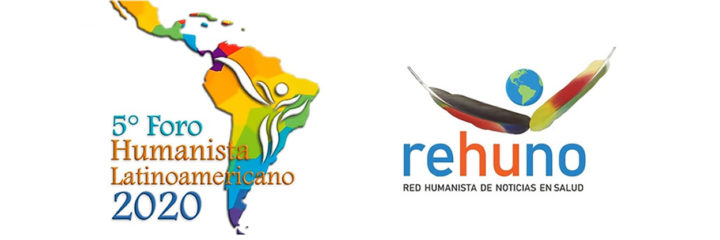This 5th Latin American Humanist Forum may be the most important forum in a generation. It arrives in the middle of a planetary pandemic that is affecting billions of people and paralyzing everything from transport to the economy to the possibility of gathering together. We need to recall that these forums originated in 1993 in Moscow by Silo, an Argentine thinker/writer who developed an approach to nonviolent social and personal transformation. In his opening talk at the Moscow forum, Silo said:
“The Humanist Forum has the objective of studying and establishing a position on the global problems of today’s world. From this point of view, it is a cultural organization in a broad sense that is concerned with structurally relating the phenomena of science, politics, art and religion. The Humanist Forum makes freedom of conscience and ideological unprejudice the indispensable condition for work in the understanding of the complex phenomena of the contemporary world.”
The power of the proposal of New Humanism is more relevant now than just a few years ago. Nonviolence in all aspects could become an alternative to the present set of values and structures that have been imposed by the North. Latin America should take the lead in launching a nonviolent cultural revolution.
Latin America needs to break free from its master, the White-West, which has been imposing its violent and selfish values, imposing political control from Mexico to Chile. We saw it, not too long ago, in Bolivia with the removal of Evo Morales. This coup was absolutely unacceptable and should never have happened. The continent needs to be able to stand on its own two feet, without having to request and obtain support from the US or Europe. People should stop immigrating north, amplifying the problems in their own countries and being used for political maneuver and cultural degradation. There is no proof that immigration resolves poverty, which itself was created by capitalist domination. Instead, a solution such as Universal Basic Income should be studied and developed as soon as possible, shifting the economic model through redistribution of financial resources to the general population.
Latin America has everything to develop itself very well and can flourish very rapidly but the difficulty is mostly in the inertia, the weight of the past. The role of China and its development in many sectors of Latin America is a sign of this transformation. It is time to focus on the creation of a cultural identity that can reinforce this evolution, that can generate strength and open the future by adopting a unifying image for all Latin America. This proposal goes above a political strategy, a tactical alliance between few countries, a so call new development project. People need to connect at a much deeper level, go beyond national politics, the flag, the sport team, the entertainment and really look at what communities have in commons, what is it that makes Latinos different from other cultures? What are we going to do with the wind, the sun, with the land and the mountains? What are the qualities of the people, the weakness that need to be addressed. If Latin America doesn’t protect its Amazon forest, no-one else will. If Latin Americans are not cherishing the unparalleled biodiversity values of the Galapagos for human evolution someone else will steal it. For example the need to overcome political absurdity so that Chile negotiates with Bolivia and grant access to the sea would be a sign in the right direction.
The Cuban experience in education in the 60’s was very powerful, becoming a game changer to a cultural transformation, elevating the quality of life of millions of people. Today no one can deny the contribution to the world of the Cuban doctors, coming out directly of this educational process.
The strength and experience of the indigenous culture should be a model to build this new civilization. It’s easy to recall the Bolivian peoples’ demonstration just a few weeks ago and regaining political power by way of democratic mobilization.
Latin America is, and has been for many decades now, a Nuclear Free Zone. It would set an important example if every country of the continent were to ratify the new international treaty to ban nuclear weapons that will be entering into force in January 2021, making nuclear weapons illegal under international law forever. All Latin American countries should also follow the model of Costa Rica, who since 1949 has abolished its military, instead relying on the strength and techniques of nonviolence to resolve its conflicts.
We also have to acknowledge the Colombians achievement in signing a historic peace agreement after over 50 years of deadly civil war. We also note the ongoing process in Chile to rewrite the constitution established during the Pinochet military dictatorship.
As we can see, the continent is not without its share of extraordinary experiences and resources. Just last year, Pressenza partnered with China Global Television Network (CGTN) to produce a documentary “They Sense It Will Be Dawn,” highlighting the work of avant-garde Latin American women who are applying science and technology towards the social and environmental good. The movie breaks with the old concept of Latin machismo and the hegemony of the West in research, and reveals a developing cultural partership between China and Latin America.
There will be no Universal Human Nation until cultures have matured, feeling the need to get together in an ambit of cooperation, exchange and coordination. Let this forum be a pioneer in that direction.






